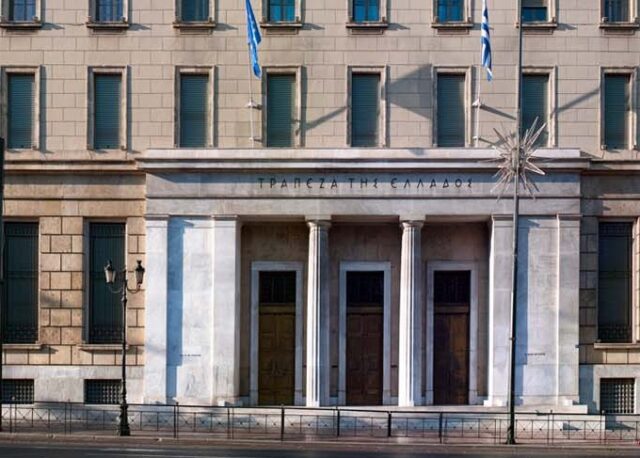ATHENS – GNUSA
Risks to financial stability in Greece are mainly exogenous and stem “from heightened geopolitical tensions and mounting trade protectionism,” according to the May Financial Stability Review issued by the Bank of Greece (BoG) on May 15. The Review is published twice a year by the Financial Stability Directorate. The outlook for the domestic banking sector remains favorable, the BoG says, in line with the country’s positive macroeconomic developments.
According to the executive summary, the Greek economy is expected to be impacted mostly indirectly by a potential slowdown in global and European economic growth and weakening investor sentiment.
In 2024, Greek banks further improved their fundamentals, significantly enhancing their profitability and capital adequacy, while maintaining high liquidity levels and further boosting their asset quality.
“The strengthening of the Greek banking sector’s resilience is undeniable. In 2024, Greek banking groups posted profits, after tax and discontinued operations, amounting to 4.4 billion euros, compared with profits of 3.8 billion euros in 2023. This development was underpinned by an increase in net interest and fee income and a decline in loan-loss provisions, while profitability was adversely affected by higher operating costs.
“The capital adequacy ratios of Greek banking groups improved further, mainly through internal capital generation and the issuance of capital instruments. In particular, the Common Equity Tier 1 (CET1) ratio on a consolidated basis increased to 15.9% in December 2024 and the Total Capital Ratio (TCR) to 19.7%, now standing at the same level as the average in the Banking Union (CET1: 15.9% and TCR: 20.0% in December 2024).
“Banks’ asset quality improved markedly in 2024, mainly thanks to non-performing loan (NPL) securitization. Specifically, the ratio of NPLs to total loans dropped markedly to 3.8% in December 2024 (from 6.7% in December 2023), the lowest level since Greece joined the euro area, converging towards the average in the Banking Union (December 2024: 2.3%)”, the summary notes.
It also adds that while the outlook for the Greek banking sector remains favorable, being inextricably linked to Greece’s positive macroeconomic developments, the likely prospect of a slowdown in euro area economic activity, along with a potential abrupt repricing of financial assets worldwide, could have a dampening effect.
“Therefore, there is no room for complacency, and the combined application of microprudential supervision and macroprudential policy is crucial for safeguarding financial stability,” the central bank concluded.





